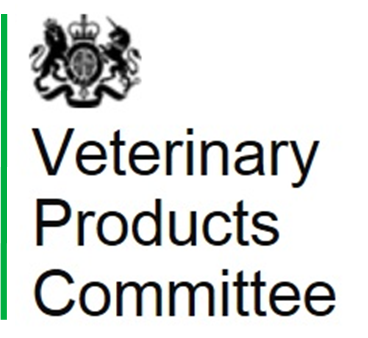Veterinary Products Committee
An independent scientific advisory committee

Our responsibilities
VPC aims to be a trusted source of evidence, advice and constructive challenge on all aspects of veterinary medicines and related products to and through the Veterinary Medicines Directorate. It does this through:
- Providing independent advice on marketing authorisation applications and Animal Test Certificates (ATCs), as requested by VMD, and hearing appeals from applicants on VMD decisions on marketing authorisation (MA) applications, reclassifications and other processes as required.
- Regularly monitoring special import certificates, ATCs and MAs issued by VMD, and undertaking quality assurance evaluations of VMD’s MA assessments reports.
- Monitoring and advising VMD on pharmacovigilance, focussing on the efficacy and adverse effects of veterinary medicines on animal, human and environmental health.
- Through its membership and members’ scientific and professional networks, providing scientific and other evidence-based intelligence and advice to VMD on both current and potential issues relating to veterinary medicines and related products.
Our priorities
In accordance with its remit and aims, VPC will provide independent evidence, advice and constructive challenge in order to help VMD achieve its aims of protecting public health, animal health and the environment, and of promoting animal welfare, by assuring the safety, quality and efficacy of veterinary medicines.
The strategic priorities for VPC for the period 2023-2027 are to:
- Consider the composition and working practices of VPC to determine effective, agile and sustainable approaches to providing VMD and other government bodies with high quality, impactful and timely feedback, advice and challenge.
- Support the implementation by VMD of its Regulatory Science Strategy and Research and Development Strategy, and, thereby ensure that the regulatory functions of VMD are underpinned by the best available scientific expertise. VPC will also perform ‘horizon scanning’ of potential future issues and opportunities, facilitating scientific and other debate, and have better engagement with VMD-supported research including assessing its impact.
- Provide impactful, timely and pertinent advice to VMD on pharmacovigilance, including communicating topics and concerns, such as environmental and sustainability issues and benefit:risk approaches, identified by stakeholders and through members’ professional networks.
- Develop a communications plan to improve understanding and dialogue with stakeholders in support of VPC and VMD activities.
Our gov.uk page has more about what we do, our publications, and meeting minutes.
This site is in BETA - your feedback will help us improve it.
